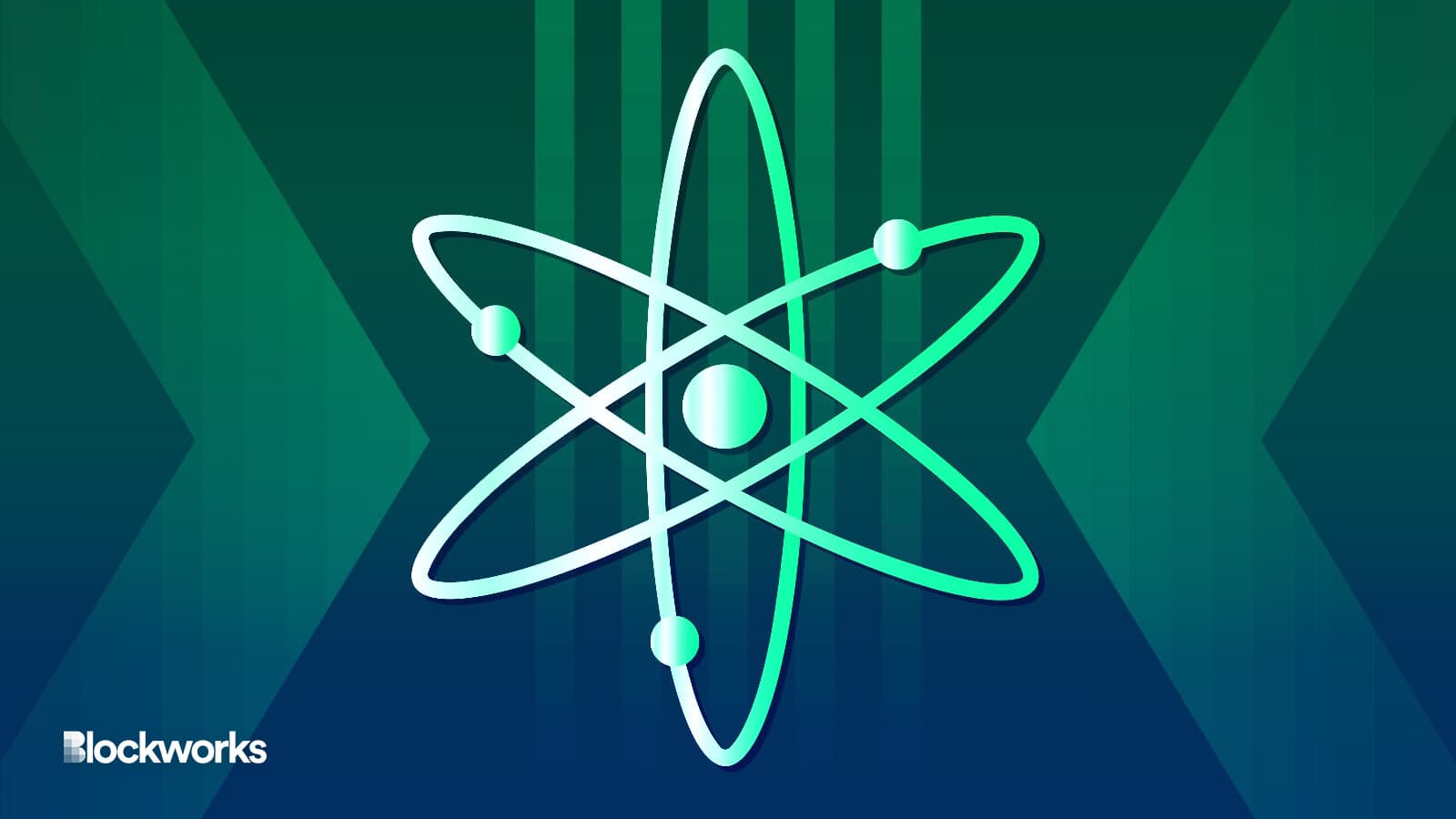2024: The Cosmos year of rollup integration and modularity
The ‘internet of blockchains’ listed a series of next year’s priorities in a lengthy developer-focused document

Satheesh Sankaran/Shutterstock modified by Blockworks
The Interchain Foundation, a non-profit focused on Cosmos adoption, released a 2024 roadmap previewing next year’s goals for the so-called internet of blockchains.
The 50-page document primarily discusses Cosmos’ focus on blockchain modularity and interoperability. It also makes multiple references to Ethereum rollups. The ecosystem aims to attract developers who are disappointed with the constraints of layer-2 solutions, with the roadmap itself meant as an onboarding tool. By publicizing its vision, the Interchain Foundation hopes to spark greater enthusiasm about the future of Cosmos.
Cosmos is a network of interoperable blockchains, meaning different protocols in the network can communicate and transact with each other without having to wrap tokens. Several infrastructural protocols in the Cosmos network contributed to the Interchain Stack Roadmap — and seem to have their sights set on Ethereum-based developers in 2024.
Cosmos’ Inter-Blockchain Communication protocol, or IBC, said its “main priority […] is to expand the reach of IBC to [zero-knowledge] and optimistic rollup frameworks.”
Cosmos’ Software Developer Kit, or SDK, claims Cosmos presents developers with greater customizability compared to Ethereum and its rollups. This is due to Cosmos’ flexibility, which comes in part from its modularity, or separation of blockchain functions. Still, Cosmos admits that its modularity toolkit has room to grow in 2024.
Cosmos software is currently “modular in theory, but in practice, it is challenging to swap and/or modify items,” Cosmos SDK wrote.
Maria Gomez, the Interchain Foundation’s managing director, told Blockworks that Cosmos has struggled to market itself to developers without a native token to create financial incentive for adoption. But compelling narratives drive adoption too, and Gomez hopes the 2024 roadmap will hit developers’ imaginations like Ethereum roadmaps have.
“In Ethereum, Vitalik comes with a roadmap, and even if that roadmap doesn’t happen, everybody gets excited around those things and conversations start to happen. And that’s what we were missing,” Gomez said.
Cosmos’ foundational blockchain, the Cosmos Hub, has seen 660 changes to its code in September. This marks an increase in developer activity from July and August, according to data compiled by Token Terminal.






